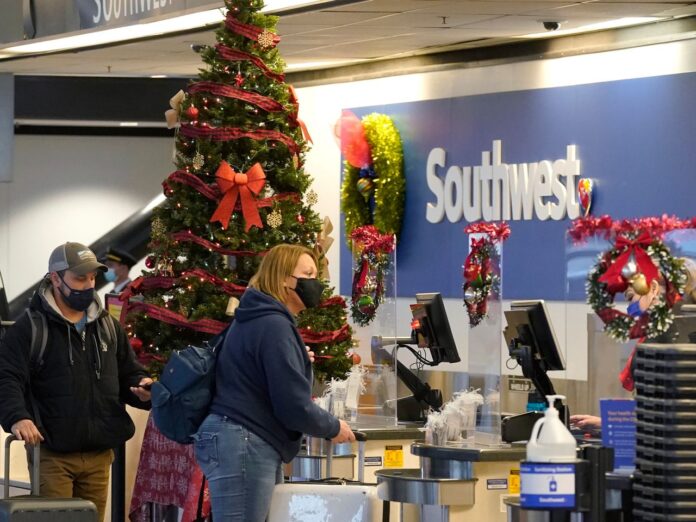As the Omicron variety spreads internationally, the World Health Organization has recommended individuals cancel part of their holiday plans in order to preserve public health.
Several governments have taken steps to attempt to limit the spread of the variation, including establishing travel restrictions.
Omicron is currently the most common pathogen in the United States, accounting for 73% of new infections.
President Joe Biden is set to deliver a speech to the nation on Tuesday, but the White House has stressed that he does not want to lock down the country.
Dr Anthony Fauci, the country’s top infectious disease specialist, has previously warned that Christmas travel would boost the spread of Omicron, even among the properly vaccinated.
Americans are now warned not to go to more than 80 countries on the Centers for Disease Control and Prevention’s Very High list for Covid-19, including nearly all of Europe.
France and Germany are among the countries adopting travel restrictions to combat Omicron, while the Netherlands has implemented a rigorous lockdown for the Christmas holiday.
In the United Kingdom, Prime Minister Boris Johnson stated that the government needed to reserve the potential of enacting additional restrictions in England as the number of Omicron cases increased.
And, on Tuesday, New Zealand delayed its progressive resumption to international travel until at least the end of February.
The WHO has classified Omicron, which was discovered in South Africa in November, as a “variant of concern.”
Dr Tedros stated at a press conference on Monday that “there was no evidence that the variation was spreading substantially quicker than the previously dominant form, Delta.”
The WHO has also stated that based on preliminary information, it would be unwise to assume that Omicron was a milder variety.
He also stated that the pandemic may be over by 2022 if 70 per cent of the world’s population was immunised by the middle of next year.
He also stated that China, where the epidemic is suspected to have begun in 2019, must share more data on the sources to aid in future pandemic strategies.




















